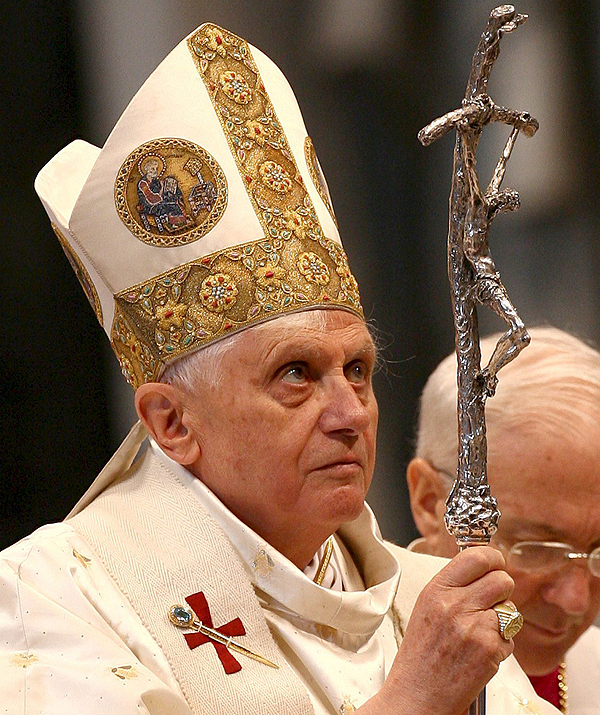By Phil Lawler | May 23, 2017
For more than four years, since his resignation took effect, Pope-emeritus Benedict XVI has very carefully avoided public comments on the state of the Church. For someone who was a very public figure and a very prolific author, his silence was conspicuous. When he announced his plan to resign, Pope Benedict pledged his loyalty to his successor, and he obviously intended to keep that promise, saying nothing that could possibly be interpreted as a criticism.
Yes, the retired Pope did occasionally write a congratulatory letter to a fellow theologian, or even a foreword for a book.
But he steered well clear of contemporary ecclesiastical debates. He has cooperated in the production of his collected works, and on at least one occasion he made an editorial decision that some careful readers saw as significant, in light of current debates within the Church. But leaving aside that one case—which involved a subtle change, and required expert interpretation—Benedict has not written or said anything that could be cited as a clear disagreement with Pope Francis.
With Benedict’s steadfast silence in mind, I am still mulling over the significance of his decision to write an “afterword” for Cardinal Sarah’s book, The Power of Silence. It would have made perfect sense for Benedict to write a foreword for the book. His praise for the book is obviously genuine, and Cardinal Sarah’s views are certainly in accord with those of Benedict/Ratzinger the theologian. But Benedict’s “afterword” was released only after Cardinal Sarah’s book was already in print.
Once a prolific author, Benedict at the age of 90 can no longer churn out written material at the same pace. Maybe he was simply late with this contribution. Maybe that explains it all. Or maybe he read the book recently, and was inspired to write something about it. That possibility makes perfect sense as well; Cardinal Sarah’s message is that powerful.
But when I read the retired Pontiff’s afterword, I pause when I reach this sentence:
We should be grateful to Pope Francis for appointing such a spiritual teacher as head of the congregation that is responsible for the celebration of the liturgy in the Church.
Benedict’s reference here is to Cardinal Sarah’s role as prefect of the Congregation for Divine Worship. Again Benedict’s praise is undoubtedly heartfelt; there is no doubt that Cardinal Sarah is, in Benedict’s opinion (and mine too, not that my opinion matters) exactly the right man for that job. But do the words of the retired Pope take on a different meaning in light of the persistent rumors that Pope Francis plans to remove Cardinal Sarah from that position?
